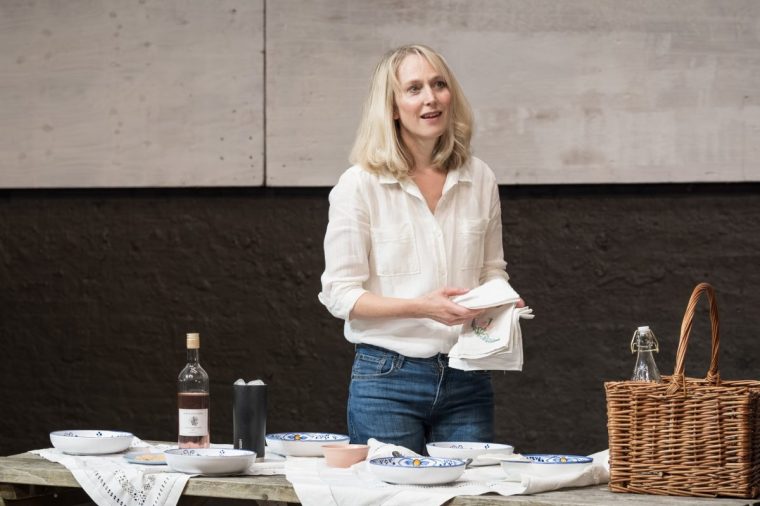The Doctor Foster writer’s play asks bold questions – but unforgivably leaves the house lights up full
What is best for the future of our land, our environment and our food production, in an ever more overpopulated world? Is organic the answer? What about rewilding? These are timely, weighty questions for us all, and full credit to a play brave enough to take them on.
Yet Mike Bartlett, the mastermind writer of that eerily prescient 2014 drama King Charles III (who also wrote and created the BBC TV series Doctor Foster), struggles to shape these themes into a satisfyingly rounded whole peopled with characters that convince as living, breathing human beings rather than concepts on a page. This, unfortunately, was also a problem that bedevilled Unicorn, his West End drama from earlier this year about a couple who embark upon a live-in threesome.
Ruth (Hattie Morahan) and Lip (Sam Troughton) are teeming with ideas and ideals. They have just bought and moved into Lip’s family farm, with the eventual aim of turning it into a self-sufficient organic paradise. This middle-aged couple have been together for one year and I must confess that I struggled to envisage how their paths might ever have crossed.
Ruth, as played with lovely initial ebullience by Morahan, is a classic portrait of the moneyed middle classes dreaming of a countryside idyll, whereas Lip – ironically nicknamed because of his taciturnity – is a wild man of the woods-type philosopher. Or as Milly (Nadia Parkes), Ruth’s twentysomething former stepdaughter – yes, the relationships are complex and frustratingly under-explored – puts it, he’s a “passive-aggressive Worzel Gummidge”.
In one of those coincidences that tend to occur only in fiction, Milly’s chum Femi (Terique Jarrett), who has joined her for a summer stay with Ruth and Lip, is about to study for a masters in rural economy and thus has much to say about farming methods. Straight-talking, wisecracking farmer neighbour Tony (Jonathan Slinger) joins in. Milly is angry with Ruth for reasons that are never made clear. Even more bewildering is the total character transformation that Milly undergoes by the final act.

James Macdonald’s production, which takes place tiringly with the house lights up full all the time, is heavy with silences and pauses, some of which go on for minutes. As, unwisely, do various speeches, with characters speaking in the full paragraphs of complex textbooks, rather than any kind of recognisably conversational language. However, Troughton intrigues as the increasingly monomaniacal Lip; this man is either a visionary – or entirely deranged.
Parkes is a sparky delight in the first act, sunbathing on Ultz’s sloping set which is covered in real grass, but the complete lack of contextual detail afforded to Milly’s character is unsettling. Why is she there, given her antipathy towards Ruth? What does she do when she’s not there? And while we’re at it, why Juniper Blood as a title? Bartlett, it seems, is intent on puzzling us this year.
To 4 October (020 3282 3808, donmarwarehouse.com)
